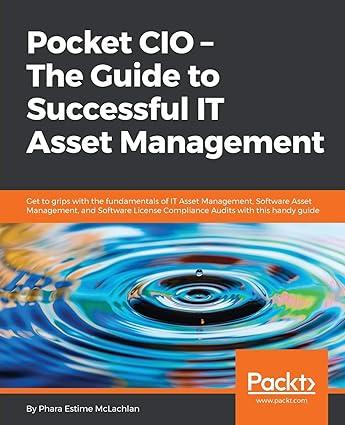Question
To supplement donations collected from its general community solicitation, Tri-Cities United Charities holds an Annual Lottery Sweepstakes. In this year's sweepstakes, United Charities is offering
To supplement donations collected from its general community solicitation, Tri-Cities United Charities holds an Annual Lottery Sweepstakes. In this year's sweepstakes, United Charities is offering a grand prize of $1,000,000 to a single winning ticket holder. A total of 10,000 tickets have been printed, and United Charities plans to sell all the tickets at a price of $150 each.
Since its inception, the Sweepstakes has attracted area-wide interest, and United Charities has always been able to meet its sales target. However, in the unlikely event that it might fail to sell a sufficient number of tickets to cover the grand prize, United Chariites has reserved the right to cancel the Sweepstakes and to refund the price of the tickets to holders.
In recent years, a fairly active secondary market for tickets has developed. this year, buying-selling prices have varied between $75 and $95 before stabilizing at about $90.
When the tickets first went on sale this year, multimillionaire Phil N. Tropic, well-known in Tri-Cities civic circles as a generous but sometimes eccentric donor, bought one of the tickets from United Charities, paying $150 cash.
Should Phil N. Tropic recognize his lottery ticket as an asset in his financial statements and if so, at what amount should it be reported?
Explain your answer and the basis for your answer.
Step by Step Solution
There are 3 Steps involved in it
Step: 1

Get Instant Access to Expert-Tailored Solutions
See step-by-step solutions with expert insights and AI powered tools for academic success
Step: 2

Step: 3

Ace Your Homework with AI
Get the answers you need in no time with our AI-driven, step-by-step assistance
Get Started


